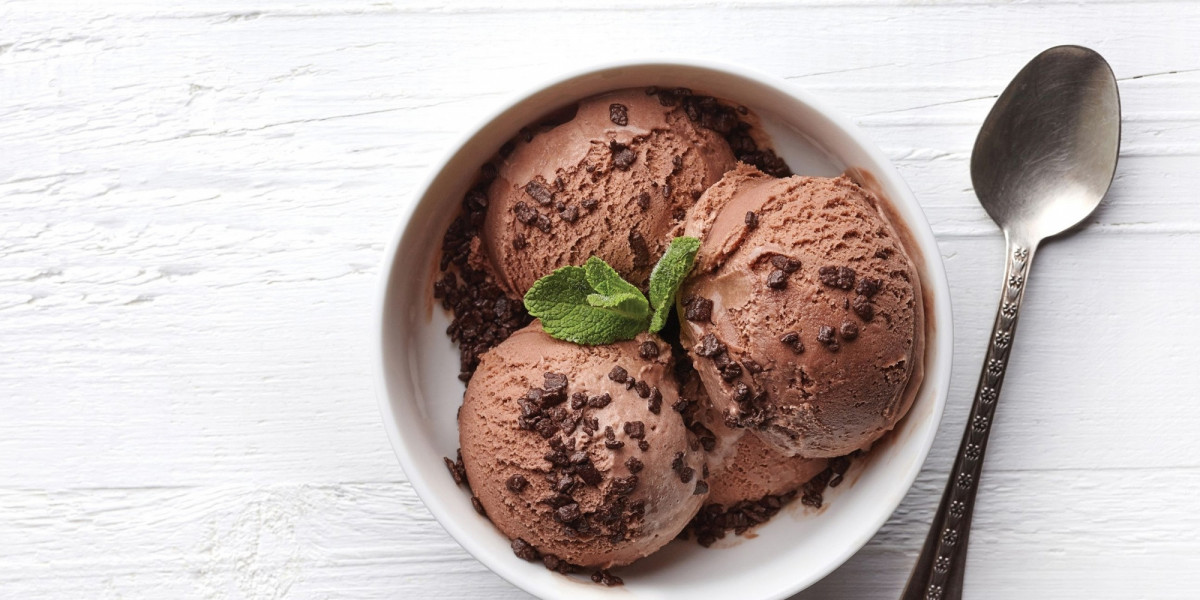The CBD ice cream market has experienced rapid growth, attracting attention from both consumers and businesses alike. As cannabidiol (CBD)-infused products become more popular, they have made their way into a variety of food products, with CBD ice cream being one of the most innovative and appealing options. However, despite its potential, the market faces several threats that could limit its growth and success. In this article, we explore the main threats to the CBD ice cream market and how they could affect the industry's future.
1. Regulatory Challenges and Legal Uncertainty
One of the biggest threats to the CBD ice cream market is the complex and ever-changing regulatory environment surrounding CBD products. While many countries and regions have legalized the use of hemp-derived CBD, the legal status of CBD in food products, including ice cream, remains unclear or subject to strict regulations.
In the United States, for example, the 2018 Farm Bill legalized the cultivation of hemp and the production of CBD derived from hemp, but the U.S. Food and Drug Administration (FDA) has yet to establish clear guidelines for its use in food and beverages. This lack of regulatory clarity leaves businesses operating in the CBD ice cream market in a precarious position, as they must navigate a patchwork of state and federal regulations. Without a clear framework, manufacturers face the risk of regulatory backlash, product recalls, or even legal action, which could harm their brand reputation and limit market growth.
In other regions, such as Europe, regulations on CBD are even more restrictive. Many countries have yet to legalize CBD in food products, and the approval process for CBD-based edibles is slow and complicated. This regulatory uncertainty could delay the widespread availability of CBD ice cream and hinder the growth of the market in these regions.
2. Intense Market Competition
As the CBD industry expands, so does the number of companies entering the market. This is especially true in the CBD ice cream sector, where established ice cream brands are beginning to introduce their own CBD-infused products. While this competition is a sign of a growing market, it also represents a significant threat to newer or smaller businesses looking to make a mark.
The rise of big players in the market can make it difficult for small or emerging CBD ice cream brands to stand out. Large companies often have greater resources for marketing, distribution, and production, which can make it harder for new entrants to compete. As these larger brands introduce their own CBD-infused ice cream products, they may also drive down prices, forcing smaller businesses to cut costs or lower their product prices to remain competitive. This price competition could lead to lower profit margins, making it challenging for smaller companies to survive in the market.
Additionally, the CBD ice cream market is highly fragmented, with numerous brands offering a wide variety of products. Consumers are often overwhelmed with choices, which can lead to decision fatigue and reduced brand loyalty. In a crowded market, differentiating a product and building a strong customer base becomes increasingly difficult, posing a threat to the long-term success of any individual brand.
3. Consumer Skepticism and Perceptions
While CBD has gained popularity for its potential health benefits, many consumers remain skeptical about its effectiveness and safety, particularly when it comes to food products like ice cream. Despite being non-psychoactive, CBD is often associated with marijuana, leading some consumers to believe that CBD-infused products could cause unwanted side effects or intoxication. This misconception could prevent potential customers from trying CBD ice cream or other CBD-infused products.
Moreover, some individuals may be hesitant to embrace CBD-based food products because they are unsure of how they will impact their health. While CBD is touted for its potential therapeutic effects, such as reducing anxiety and improving sleep, there is still a lack of conclusive scientific research on the long-term health benefits and safety of consuming CBD regularly. Until more research is conducted, consumer trust in CBD products may remain a barrier, limiting the market potential of CBD ice cream.
Additionally, the stigma surrounding cannabis-related products may deter certain demographics from purchasing CBD ice cream. Some consumers, particularly older generations or those with conservative views, may be uncomfortable with the idea of consuming a product that contains any form of cannabis, even if it is derived from hemp and does not produce a "high." Overcoming this stigma will require education, transparency, and increased awareness of the differences between CBD and THC (tetrahydrocannabinol), the psychoactive compound in marijuana.
4. Pricing and Affordability
The price of CBD-infused products, including CBD ice cream, remains a significant barrier to widespread adoption. CBD is an expensive ingredient to source and incorporate into products, which often results in a higher price point for consumers. In many cases, CBD ice cream is priced at a premium compared to traditional ice cream, which could limit its appeal to price-sensitive customers.
While the cost of CBD has been decreasing in recent years, it is still a significant factor that businesses must consider when pricing their products. For many consumers, the higher cost of CBD ice cream may not be justified, especially when traditional ice cream is available at a much lower price. As the market matures and production costs decrease, the price of CBD ice cream may become more competitive, but for now, the price remains a major threat to the market's growth.
5. Supply Chain and Distribution Challenges
The CBD ice cream market also faces significant supply chain and distribution challenges. Because CBD is a regulated ingredient, manufacturers must ensure compliance with local and international regulations throughout the production and distribution process. This can create logistical hurdles, particularly for businesses looking to scale up operations and expand into new markets.
In addition to regulatory hurdles, CBD ice cream products require specialized storage and transportation conditions to maintain their quality. Unlike traditional ice cream, which can be stored and transported at standard freezer temperatures, CBD ice cream may need to be handled with extra care to prevent degradation of the CBD content. This adds complexity to the supply chain, making it more difficult for businesses to efficiently distribute their products to retailers or consumers.
Moreover, retailers may be hesitant to stock CBD-infused ice cream due to the uncertainties surrounding its legality and consumer demand. As a result, distribution channels for CBD ice cream may be limited, further hindering the growth of the market.
Conclusion
The CBD ice cream market offers exciting opportunities for businesses looking to capitalize on the growing demand for CBD-infused products. However, several threats could hinder its growth and success. Regulatory uncertainty, intense market competition, consumer skepticism, high pricing, and supply chain challenges all represent significant risks that businesses must navigate. To overcome these threats, companies will need to stay informed about regulatory developments, invest in consumer education, and find ways to differentiate their products in a crowded market. By addressing these challenges head-on, businesses can position themselves for success in the evolving CBD ice cream market.
Discover more: https://www.pristinemarketinsights.com/cbd-ice-cream-market-report









